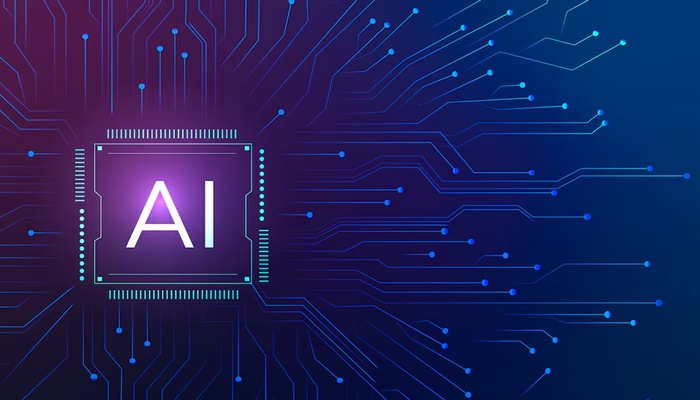One of the most-feared and most-asked questions is whether artificial intelligence (AI) will take away human jobs.
Travel technology firm ixigo’s Group Co-CEO Rajnish Kumar’s reply offers no comfort. He expects AI to not only replace white-collar jobs but even manual labour work.
“The future of physical intelligence is round the corner. With software intelligence reaching its culmination, physical intelligence will get to the point where a lot of manual labour work will also be done by robots very soon. I don’t think there’s any area that will be left untouched. Some things are extremely easy to replace right now, and some will take two or three years to get impacted,” Kumar told Moneycontrol.
According to him, AI is the most unprecedented pace of technology, and it is the biggest inflection point in the history of humanity.
“Customer support and certain other use cases have rendered themselves extremely simple, to be replaced by AI. Those that are getting replaced first are content creation, customer support, or even vetting documents or legal due diligence. A lot of these things are easily getting replaced by AI,” he said.
‘No sector will be left untouched’
More complex things will also get replaced, Kumar noted.
“A lot of companies are using AI to write codes. Engineers are using it every day. Whether they are writing 20 percent of their code with AI today, 30 percent tomorrow, or 90 percent in a year from now, that number will keep changing. That’s how you’ll see the impact. Right now, you might say that, on the engineering side, the impact is not as great as on the customer support side. But a year down the line, you might not say the same thing. The pace at which AI is moving is so rapid that I don’t think any sector will be untouched.”
The AI race
He also highlighted how India is not in the AI race and that it is a two entity-race currently.
“It looks like India is not in the (AI) race at all. We are quite far away as of now. It’s mostly a two-entity race right now — US and China. China has surprised a lot of people with DeepSeek, the Manus moment, or even new products that it is consistently coming up with,” he said.
Kumar, who has been talking about AI for a decade now, with published papers on AI and one which was presented at MIT (Massachusetts Institute of Technology), Boston, in 2004 —long before AI became a buzzword, said that large language models (LLMs) have changed the game.
“We have been using AI for the last 10 years or more, but that was mostly traditional AI algorithms—data science, predictive algorithms, etc. Once LLMs came, a lot of things changed. Everything that was considered very difficult to do has suddenly become extremely easy. Now, LLMs have been both commoditised as well as democratised, so people have easy access, and the price is going to come down,” Kumar said.
Building on the easy access to AI technology, Kumar said: “The good thing about the new world is that LLMs are more like a computing resource — accessible to everyone and will keep becoming cheaper and faster just like chips did in the past.”
The good thing about this tech
The good thing about this tech is that it’s dead simple to use, he added.
“You can just talk to it in plain English, or whatever language you speak, and it will give you the answer. This is very unlike any other technology in the past, where there has always been an adoption curve, a learning curve,” he said.
The high AI adoption can be seen through the success of ChatGPT that doubled its MAUs (monthly active users) in a span of a few months, just by launching simple features like image generation.
“The reason ChatGPT is growing so fast and is so big is not because they have an extremely superior model. The underlying AI capabilities between various players aren’t drastically different. What created a massive distribution for OpenAI is that it is extremely consumer and product centric. They created a product that is extremely accessible and put this technology in the hands of a lot of people. They made it easy for people to use this promising tech. The ability of these platforms to turn a technical capability into market dominance is what will matter.”
What it means for travel firms, and the coming shift
“Even for travel companies, it’s not about having unique AI capabilities because those are commoditised and available to everybody; it’s mostly about creating interfaces and use cases that make those capabilities extremely user-friendly and indispensable,” he said.
“The apps will become so intelligent that they will pre-empt problems before they even occur. One way this will happen is through a shift in the user interface. That’s why multimodal apps are the future. You might have the standard app interface, but you’ll also have an AI-based interface that guides you, likely through voice.
“AI systems are becoming more and more agentic. This means they (AI systems) can autonomously perform and complete tasks. For example, if you reach your destination, AI can suggest restaurants and also book a table for you or schedule a cab for the next day. Travel apps of the future will be extremely conversational, natural, pre-emptive, hyper personalized, and agentic,” he said.
AI adoption
However, when it comes to adopting AI inside products and services, not a lot has happened yet. “I haven’t seen larger organisations doing much yet. The reason could be because of the scale at which larger organisations operate.”
“There’s a lot of noise around AI right now, a lot of talk about what AI can do, but companies have not been able to figure out exactly how to implement it. One of the reasons is that inside most organisations, even if you want to look at efficiency, people are still struggling with legacy systems. In travel, there are a lot of legacy systems. Also, firms cannot use AI unless their data is structured and available in one place inside a warehouse. It must be properly documented and the schema properly defined, because AI cannot make sense of data unless it understands what the data is about,” he said.
These challenges are making adoption difficult, Kumar said.
“Once people can ensure that their data is centralised, sorted, documented, and schematized, and once they have all their internal processes available with an API-first approach, because AI agents cannot do anything unless they have programmatic access, the adoption will accelerate.
“But there are some basic things that everybody has started using, like customer support,” he added.
“This is one area, I think, across the board, not just in the travel segment, where most companies would be using some sort of AI. Companies that are not using AI (for customer support) will become irrelevant very soon.”
In addition, AI is being used on a day-to-day basis by people inside the organisation to be more efficient.
For instance, if somebody had to write a product requirement document today, they would not write it from scratch; they would obviously use AI to write that document, Kumar pointed out.
“From writing an email, vetting a document, or summarising a long piece of PDF, which has 50 pages, where people had to manually write and understand stuff, all these things are now becoming more efficient using AI. I think this is one thing that is making a difference. This is a common use case within an organisation, helping organisations and people become more efficient,” he said.




















